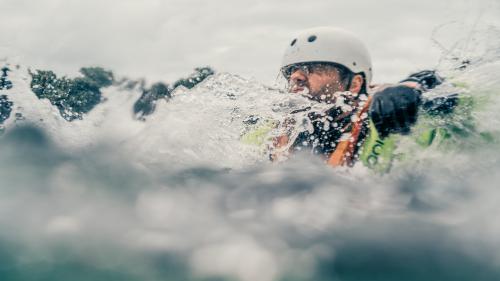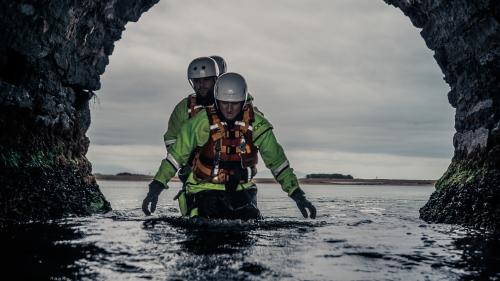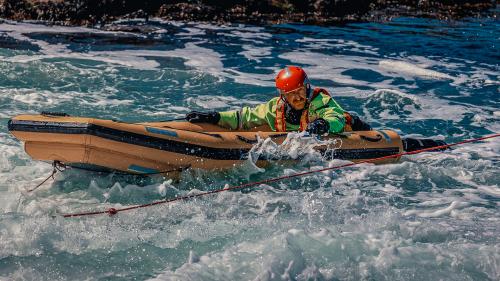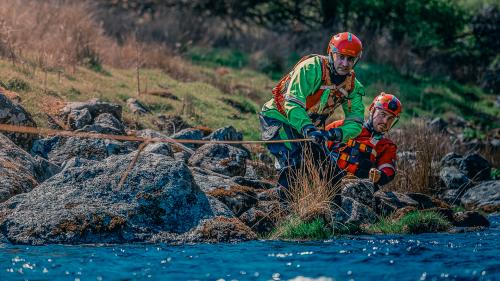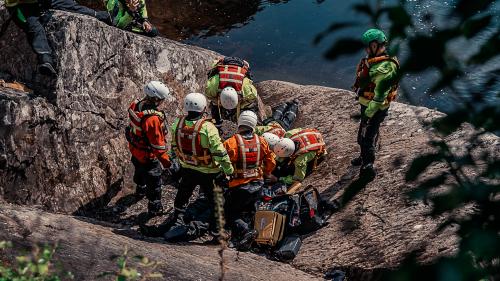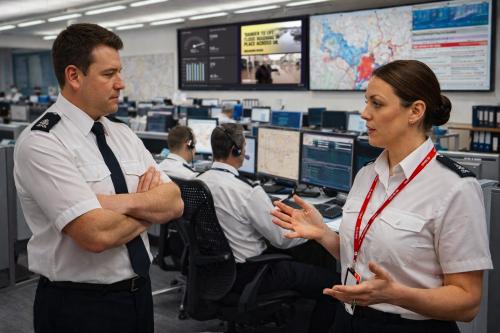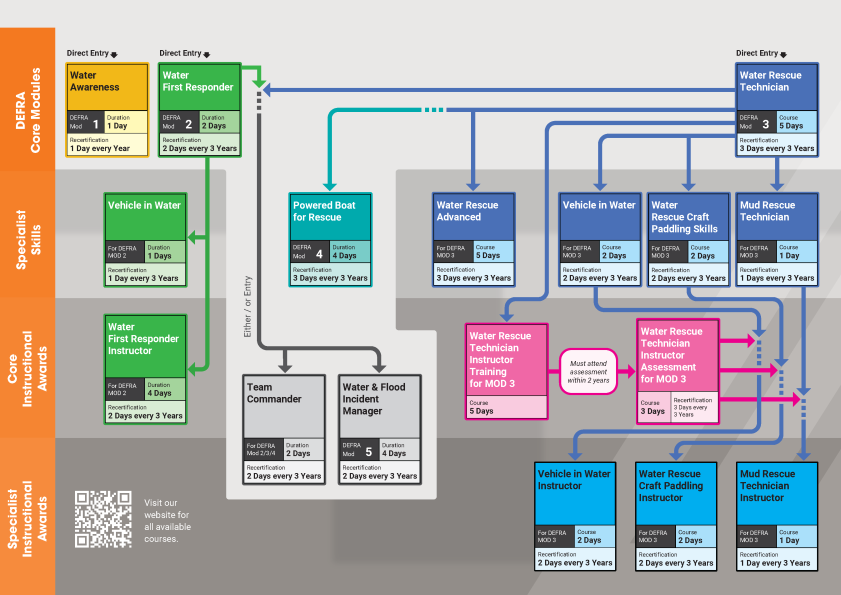
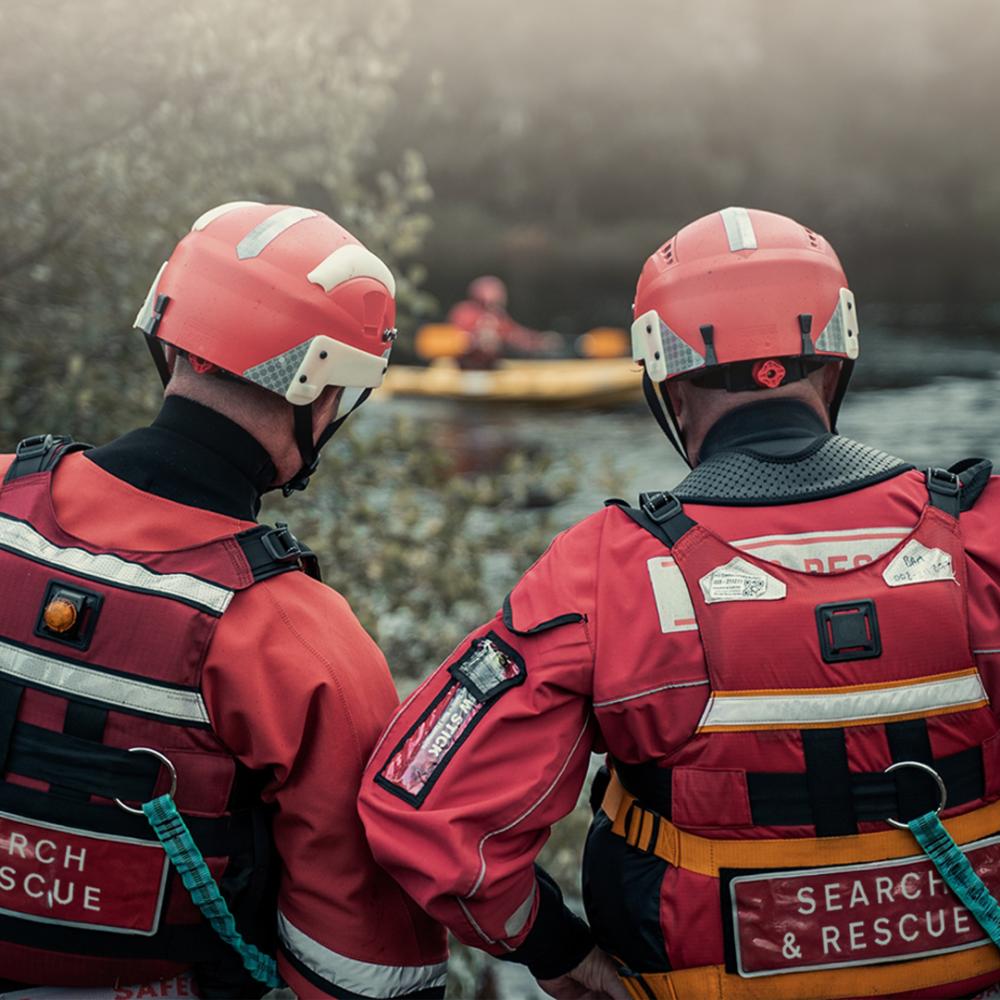
Water Rescue Training
Build capable, confident assets for water and flood response
Our water rescue training pathway takes delegates from basic awareness through to advanced incident management, highlighting potential progression routes available at every stage. Courses are designed to align with the UK’s DEFRA Flood Rescue Concept of Operations (FRCO) 2025, ensuring they reflect operational practices used by many emergency services and rescue organisations across the country.
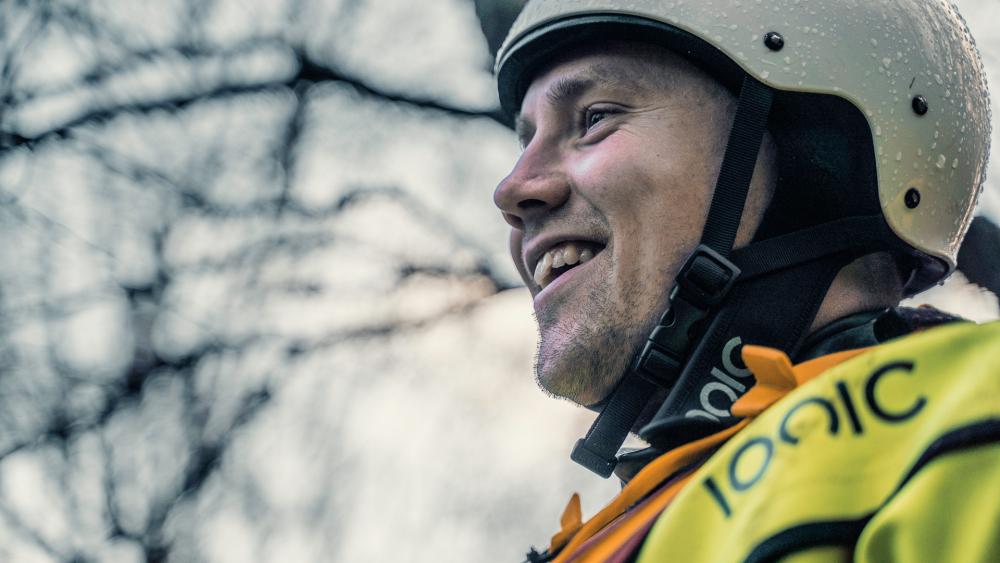
Why Train with Outreach Rescue?
- Experienced instructors: Real-world rescue expertise with proven teaching skills.
- Aligned with DEFRA: Meets all 2025 standards, including timeframes and outcomes.
- Optimum trainer-to-delegate ratios: Typically 2:7 or better for more contact time and feedback.
- Reliable water conditions: Access to venues that guarantee powerful moving water when required.
- Realistic environments: Simulated incident conditions with controlled, manageable risks.
Direct Entry Courses
These courses are ideal for anyone starting out in water safety and aiming to build their knowledge and understanding of rescue.
Instructor & Incident Command Pathways
Clearly defined learning pathways build experience and help qualified water rescue professionals deepen their expertise to take the next step in their careers.
How Progression Works
Most Outreach Rescue awards build on the experience gained in earlier training. Some courses allow direct entry with no prior experience, while others require completion of specific prerequisites. We also recognise prior learning from other training providers, enabling delegates to join our award scheme at a level that reflects their existing skills.
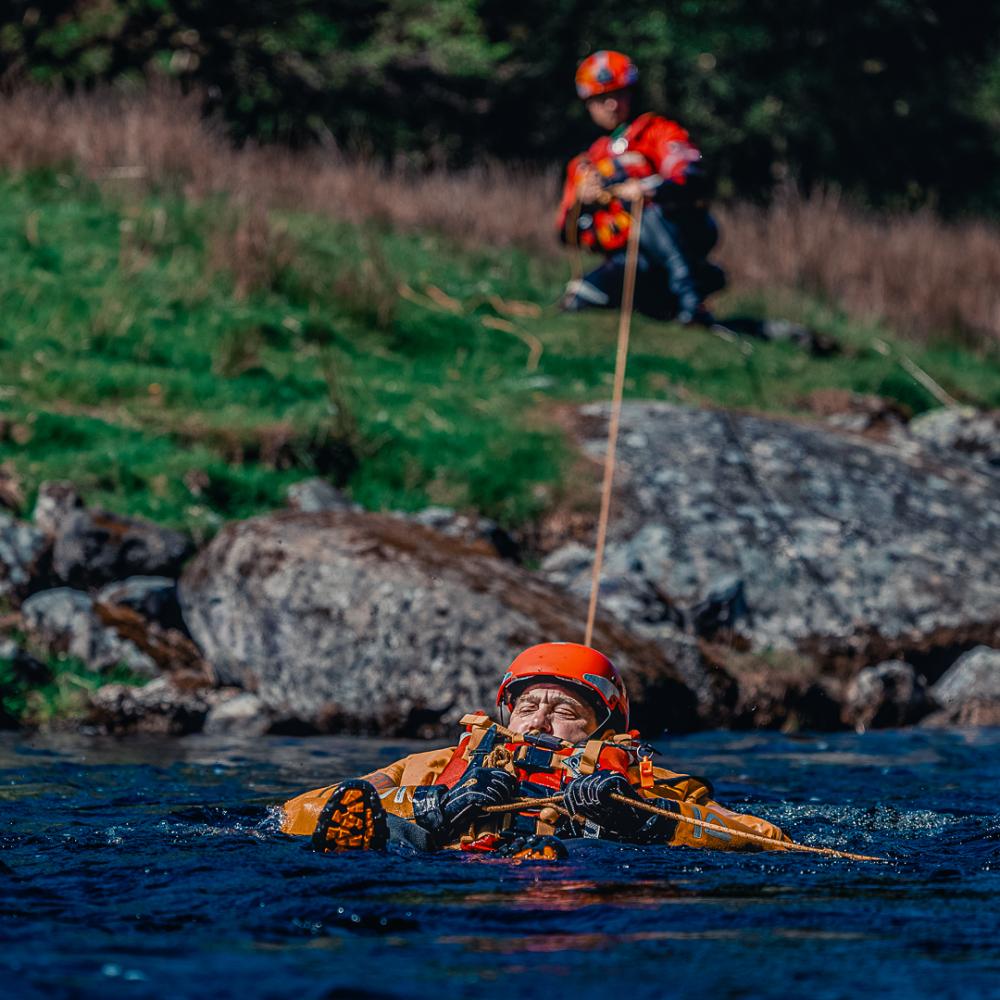
National Standards
Our courses are designed to align with the UK’s DEFRA Flood Rescue Concept of Operations (FRCO) 2025 — the framework widely used by emergency services and rescue organisations for safe and effective water rescue.
This alignment ensures training scenarios reflect operational conditions — from fast tidal currents to debris-filled floodwater. Delegates learn how to read water, assess hazards, and apply safe, calculated decision-making under pressure.
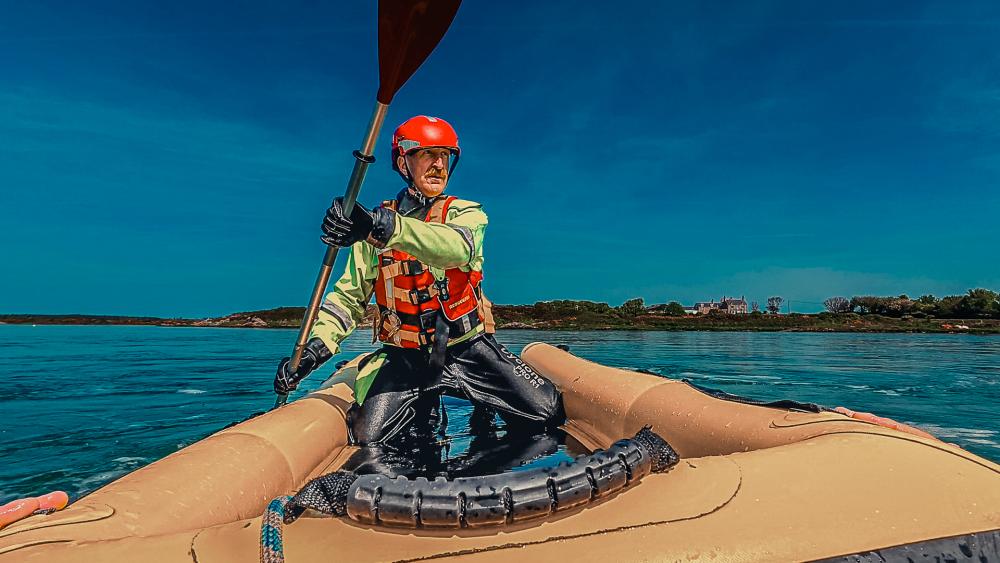
Water Rescue Golden Rules
These principles run through every water course, building both technical skill and professional judgement.
- Look after yourself → then your assets → then those in need (casulaty)
- Never commit if you can’t escape
- Always follow ‘clean line principles’ – lines must be releasable without snag hazards
- Work with the current, not against it
- Approach hazards from downstream where possible
- Always have a plan, a back-up plan — and a back-up to the back-up
- Minimise rescuers in the hazard zone, maximise their safety
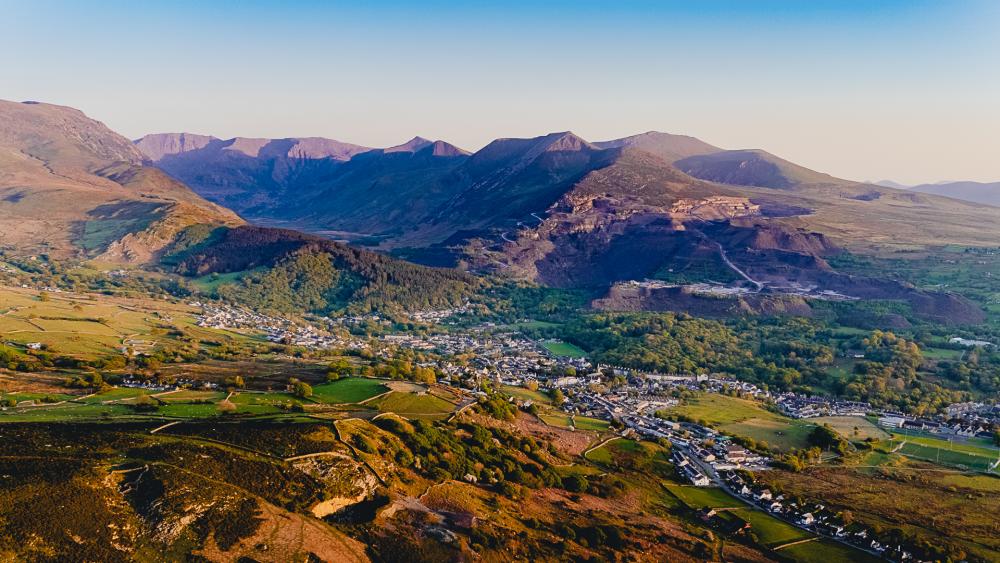
Training in the Heart of Eryri
Our practical water rescue training takes place in a variety of challenging waterways. Based in Eryri National Park (Snowdonia), we utilise local rivers, and tidal waters to prepare delegates for real-world incidents.
Facilities
Training is delivered at the Tan-y-Bwich Centre, Llanllechid, Gwynedd (near Bangor, Wales), with access to classrooms and specialist rescue equipment. Practical sessions are held in varied environments to ensure delegates gain realistic, hands-on experience. On-site accomodation and catering can also be provided.
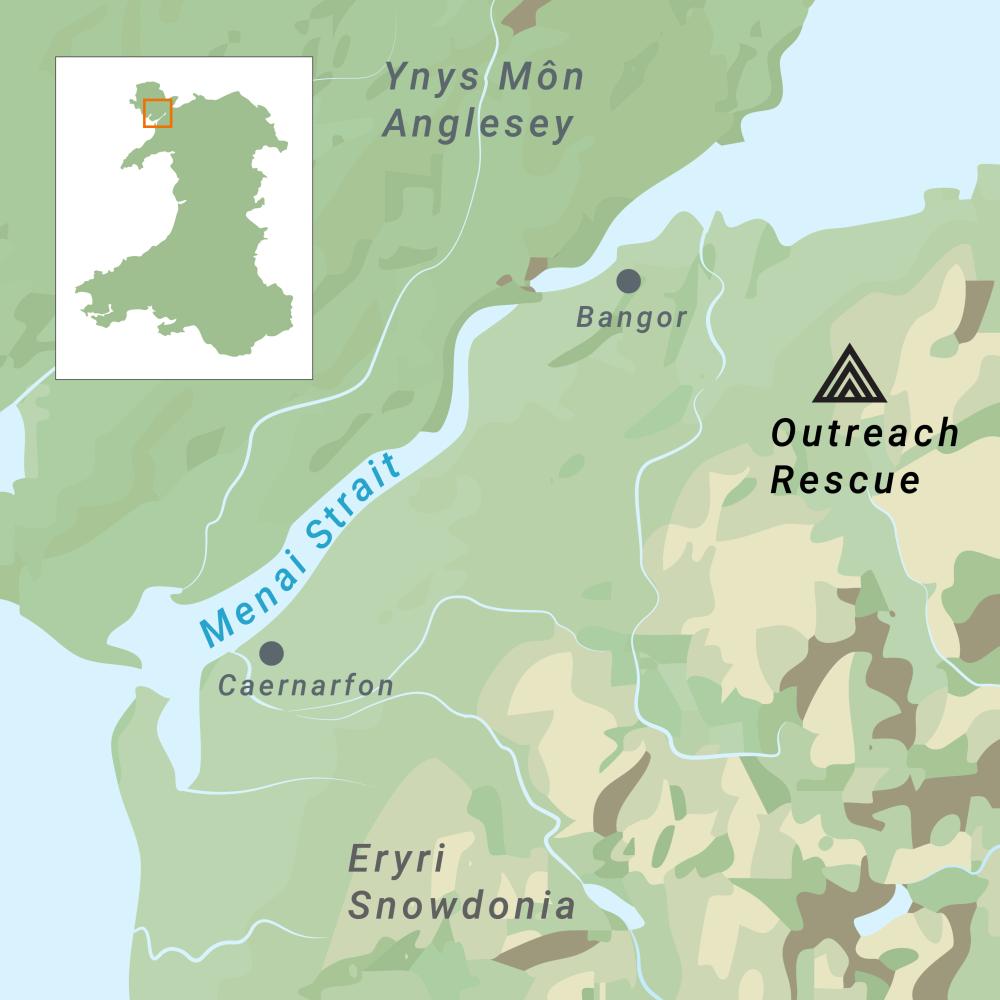
The Natural Venues Advantage
Eryri (Snowdonia) in North Wales provides a diverse range of training venues, from tidal channels and rivers to managed water sites. The Menai Strait, with its challenging tidal currents, is reserved for our Water and Flood Rescue Boat Operator courses. All other water rescue training is delivered at carefully chosen locations across the region, selected to match course objectives with the most suitable water and weather conditions. This variety gives delegates valuable experience in real-world environments, developing hazard awareness, adaptability, and sound operational judgement.
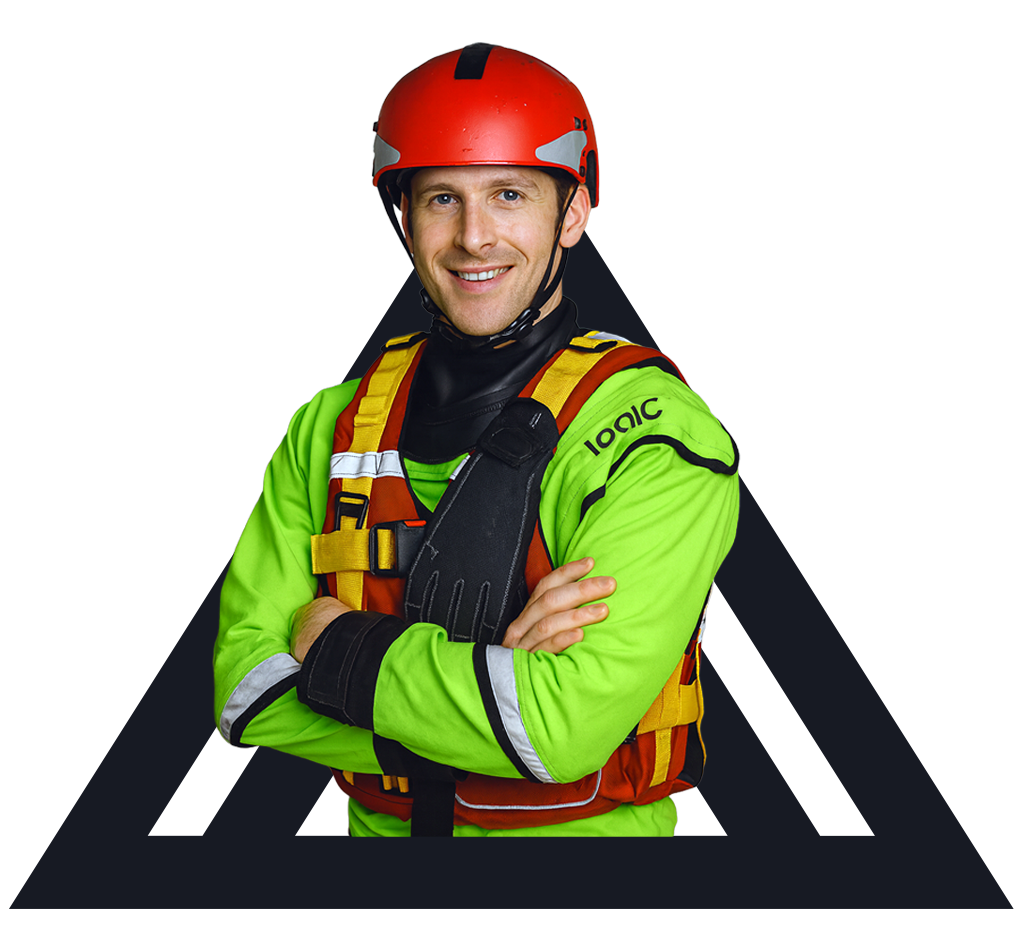
Take your next step in Water Rescue training
Call +44 (0)1248 601 546, email enquiries@outreachrescue.com or complete the form below to request more information.
FAQs
Frequently Asked Questions
Do I need previous water rescue experience to join a course?
Not for all courses. Those described above as being ‘Direct Entry’ require no previous water rescue experience. All other courses do require one of the ‘Direct Entry’ courses as a prerequisite.
How often do I need to recertify?
Most water rescue qualifications offered require recertification every 3 years. This ensures skills remain aligned with the latest operational practices. Delegates must maintain CPD activities as described in the relevant DEFRA FRCO documentation. See our course pages for details.
Can we upskill our whole team?
Yes. We can design a training plan tailored to any organisation's operational role and environment.
What is the maximum number of delegates per course?
Group sizes vary depending on the course and training environment, but keeping numbers low ensures high-quality instruction and plenty of practical time for each delegate. For classroom-based learning we can accomodate up to 12 people. Practical in water training is typically delivered to groups of 7, or multiples of.
Are the courses physically demanding?
Yes. Practical water rescue work involves operating in challenging environments. Courses include practical elements in moving water, so a reasonable level of fitness and water confidence is essential.
How does Outreach Rescue manage safety during training?
Safety is our priority. We continually monitor weather, tides, and river levels and conditions to inform our decisions to choose a suitable training venue for a given day. This ensures we maximise on training outcomes whilst managing the associated risk.
What do I need to bring with me?
Outreach Rescue has a comprehensive equipment store, so we can provide all the technical equipment and PPE that you’ll need for training. You will just need to bring underlayers and socks to wear under the insulated layer and dry suit we provide. If you have your own drysuit, PFD, water rescue footwear and helmet, you are welcome to bring and use them.
|
|

